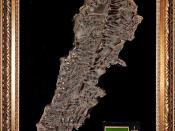"There is much public interest in the debate about the effects of violence in the media on the behaviour of young children. But why don't people focus on the potentially pro-social influence?"
Throughout the existence of popular media outlets, critics have suggested links between the embracement of them in public life and negative aspects of human behaviour. In the Victorian period, the 'penny theatre' was attributed to corrupting the mind with scenes of "grossness, crime and blood". In ancient Greece the philosophers Socrates and Plato expressed similar worries, that the minds of the young were being corrupted by the factitious works of such poets as Homer and Hesiod.
In the latter half of the 20th Century to the present day, much emphasis has been placed on the role of television programmes in influencing, instigating and even promoting aggressive behaviour. The seemingly widespread distribution of programmes with anti-social messages has caused the public to become distressed about the effects such programmes can have on the more vulnerable minds of children.
In America, the average hour of children's TV contains upwards of twenty violent acts, with the average child viewing for 17 hours a week. If this magnitude of aggressive television is being viewed, it is understandably imperative to determine fully the link between violent media and the effects, whether long term or short, that it has on a child's behaviour.
Conversely, it is obvious that popular forms of media have been used as scapegoats for millennia. Rather than contemplate the Hobbesian notion that aggression is somehow inherent in human nature, people have sought instead to shift the blame. There is a clear focus on media's anti-social effects on young people's behaviour, yet there is very little study into the pro-social role that television programmes can perform. This is due, in part,


